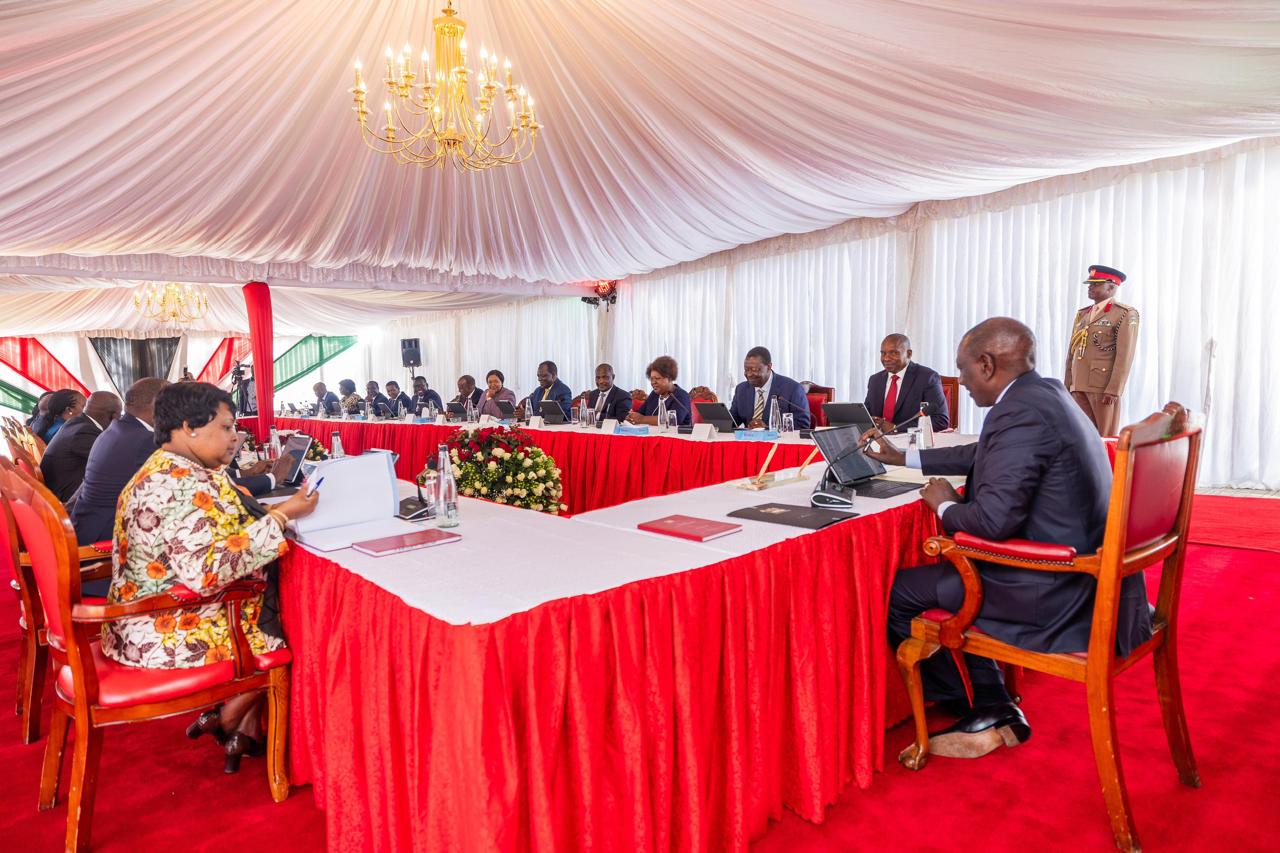42 State Corporations merged, 9 dissolved in sweeping reforms aimed at cutting costs

The Cabinet indicated that the reforms are driven by the need to address operational inefficiencies, reduce redundancy, and improve service delivery.
The Cabinet has approved a restructuring of State Corporations that will see 42 entities merged into 20 streamlined organisations, nine dissolved, and 16 others divested.
The move aims to enhance efficiency, cut costs, and address fiscal pressures in the public sector.
More To Read
- Speaker Kingi submits list of absentee landlord farms to Ruto for squatter resettlement
- President Ruto leads nation in mourning former Lugari MP Cyrus Jirongo
- Ruto honours Benni McCarthy, Harriet Okach for elevating Kenya’s sports profile
- JKIA–ABC road corridor to get new look as Ruto revives city roadworks
- Ruto honours Kristina Kenyatta, Dorcas Oduor, William Kabogo with EGH awards
- Ruto raises research funding to 2 per cent of GDP in bid to expand digital economy
The reforms, approved during the year’s first Cabinet meeting chaired by President William Ruto at State Lodge, Kakamega on Tuesday, follow a detailed review by the National Treasury.
The review assessed 271 State Corporations, excluding those marked for privatisation.
The Cabinet indicated that the reforms are driven by the need to address operational inefficiencies, reduce redundancy, and improve service delivery.
Additionally, they are designed to ease the burden on the Exchequer, especially as the government grapples with limited resources and a growing public debt.
Under the plan, 42 corporations with overlapping mandates will be merged into 20 entities.
Among the proposed mergers are the Higher Education Loans Board and the University Fund, and the Kenya Tourism Board with the Tourism Research Institute. Other key mergers include the Export Processing Zones Authority with the Special Economic Zones Authority and the Kenya Water Towers Agency with the Agricultural Development Corporation.
Nine corporations, including the Kenya Tsetse Fly and Trypanosomiasis Eradication Council, the Kenya Film Classification Board, and the Nuclear Power and Energy Agency, will be dissolved, with their functions integrated into relevant ministries or other state bodies.
Sixteen entities with outdated mandates or roles that can be fulfilled by the private sector will either be divested or dissolved.
These include the Jomo Kenyatta Foundation, Pyrethrum Processing Company of Kenya, and Kenya Post Office Savings Bank.
The restructuring also includes adjustments to six corporations to better align their roles with national priorities. Public funds such as the Sports, Arts, and Social Development Fund will be declassified from the State Corporation category and returned to their respective ministries under enhanced governance structures.
Professional bodies such as the Engineers Board of Kenya and the Nursing Council of Kenya will also be declassified.
Consequently, the Cabinet indicated that these organisations will no longer receive budgetary allocations from the government.
The reforms are seen as necessary to address fiscal challenges, particularly the accumulation of pending bills, which stood at Sh94.4 billion as of March 2024.
The Cabinet highlighted that many corporations have struggled to meet their financial obligations due to inefficiencies and over-reliance on government funding.
“All professional organisations currently categorised as State Corporations will also be declassified and will no longer receive government budgetary allocations. These reforms have been necessitated by increasing fiscal pressures arising from constrained government resources, the demand for high-quality public services, and the growing public debt burden,” reads the dispatch.
The government hopes the restructuring will improve performance, enhance service delivery, and create a leaner, more efficient public sector.
Top Stories Today












































